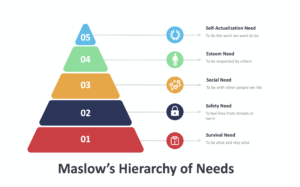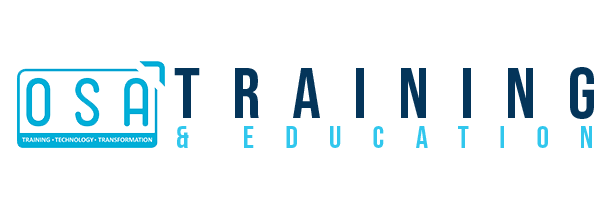Most of us, including our team members and peers, seek satisfaction from life in relation to what Abraham Maslow called the “five basic needs.” And we seek a good part of this satisfaction at our work. Maslow outlined these basic needs, and we’ll try to explain these needs as conceived from his hierarchy, with the most compelling ones coming first and the more sophisticated later.
 We Need to Be Alive and to Stay Alive
We Need to Be Alive and to Stay Alive
We need to breathe, eat, sleep, reproduce, see, hear, and feel. But in today’s world, these needs rarely dominate us. Real hunger – for example – is rare in most societies. All in all, our first level needs are satisfied. Only an occasional experience – a couple of days without sleep, a day on a diet without carbs or sugar, a frantic 30 seconds underwater – reminds us that these basic needs are still within us.
We Need To Feel Safe
We like to feel that we are safe from accident or pain; from competitors or criminals, from an uncertain future or a changing present. Not one of us ever feels completely safe. Yet most of us feel reasonably safe. After all, we have laws, police, insurance, social security, employment contracts, etc. to protect us.
We Need to be Social
From the beginning of time, we have lived together in tribes and family groups. Today, these group ties are stronger than ever. We marry, join clubs and even pray in groups. The social need varies widely from person to person – just as other needs do. Few of us want to be hermits. Not everyone, of course, is capable of frank and deep relationships – even with a wife or husband and close friends. But, to a greater or lesser degree, this social need operates in all of us.
We Need to Feel Worthy and Respected
When we talk about our self-respect or our dignity, this is the need we are expressing. When a person is not completely adjusted to life, this need may show itself as undue pride in achievements, self-importance, boastfulness – a bloated ego.
But so many of our other needs are so easily satisfied in the modern world that this need often becomes one of the most demanding. Look what we go through to satisfy the need to think well of ourselves – and have others do likewise. When a wife insists her husband wears a jacket to a party, she’s expressing this need. When we buy a new car even though the old one is in good shape,l we’re giving way to our desire to show ourselves off, paired with the need to validate our achievements and status.
We even modify our personalities to get the esteem of others. No doubt you’ve put on your company manners when you represent the organization. It’s natural, we say, to act more refined in public than at home – or to cover up our less acceptable traits.
We Need to Do the Work We Like
This is why many people who don’t like their jobs turn to hobbies for expression, and why so many people get wrapped up in their work. We all know men and women who the hard burden of laboring work, or workers in a manufacturing plant who hurry from work to run their own lathes or bored terminal operators who stay up late in their own homes doing lifelong hobbies.
This need rarely is the be-all and end-all of our lives. But there are very few of us who are not influenced by it.
In the United States in the 1960s and early 70s, many young people dropped out of society to set out to do their own thing. This was largely an expression of the desire to fulfill oneself – the need for Self-Actualization.
So which of these needs is the most powerful? We say, the ones that have not yet been satisfied.
Maslow’s greatest insight was the realization that once a need is satisfied, it will no longer motivate a person to greater effort. If a person has what is required in the way of job security, for example, offering more of it – such as guaranteeing employment for the next five years – will normally not cause a person to work harder.
The leader who wishes to see greater effort generated will have to move to an unsatisfied need, such as the desire to be with the other people on the job, if this employee is to be expected to work harder as a result.
***
Having explored Maslow’s Hierarchy of Needs once again emphasizes the importance of how leaders should be vastly aware of their people’s motivation. With the undying question on motivating our team members, leaders can utilize this awareness and embrace such needs – both of their own and of their people.
